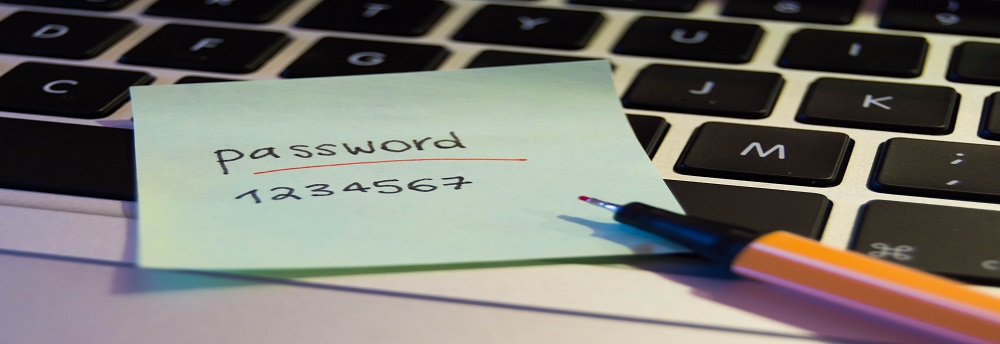
02 Jan Are Passwords A Thing of the Past?
Passwords have been used for many years to grant access to any number of things, both physical and cyber-based. Whether used to open up a safe, check bank account details or to log into a website, the password serves as a gatekeeper to our own personal data and items – and in theory, protects us from the risk of unauthorised access.
According to a report by Intel Security, the average english-speaking adult has 27 online login and password combinations and they use half of these on any given day. This means that there is a lot to remember and typically these passwords need to be stored somewhere, and it is the storing of passwords that creates significant security risks. Some of the most common mistakes made when using traditional word or number-based passwords include:
Unsecure storing:
Far too many people resort to keeping a log of their passwords simply in a notebook, mobile phone, computer or diary. Or they’ll turn to using the same, or similar, password for every type of account they have. This is incredibly insecure and can lead to accounts becoming hacked very easily.
Using a password that can be guessed:
People tend to use simple combinations for passwords too, such as pets names or cars or even their children’s names. In 2018, there are currently 2.6 billion social media users worldwide, and many of them present this information in their day-to-day online social activity.
This means a cybercriminal doesn’t have to look too far to gain some insight into what a person’s password may be. The same rings true for the common security questions that are added as a two-step authentication process by many.
As we move further into the digital era, and more and more processes move online, the need for gated entry systems is becoming more common. This is true in both our personal lives and our working lives.
Particularly with the introduction of the GDPR earlier this year, the need for heightened data security has become increasingly important. A breach could potentially cost your business a very hefty fee, and so this calls into question whether passwords really be relied upon to protect the sensitive and important data you keep.
40% of businesses have suffered a password-related security incident
In another survey conducted by Telesign, 40% of the 2,000 polled said that they had suffered some form of password security incident, including their accounts being hacked, having a password stolen and changed, or were informed that their data had been compromised in some way.
As we head further into the age of digital and begin to store more of our private and sensitive data in the cloud, on devices and online, we need far more robust security measures to ensure we can crack down on cybercrime.
So does this mean that passwords are becoming a thing of the past? We think so, but what are the alternatives?
In a global study conducted by information technology giant IBM, consumers see biometrics as more secure than a password. The people surveyed revealed that they would rank security above convenience for logging into the majority of applications, particularly money-related apps.
This meant that 67% of those polled are currently comfortable with using biometric authentication methods and 87% said they would be happy with these technologies in the future. Millennials are already advocating for the switch to biometric technologies, as 75% already comfortably use the technology to avoid the need for complex passwords.
Security authentication is slowly changing with the need for stronger protection. Biometric technology is the perfect solution to replace passwords for the future. It may be some time coming, but we believe this shift will happen in the very near future.
The people are already becoming more comfortable with biometrics and already feel that it is a better way to protect their data. Biometric technology is extremely secure and, unlike a password, it is very difficult to compromise, hack or manipulate.
This is because when a piece of biometric data is recorded, such as a fingerprint, it is then converted into a biometric template and the original image is discarded. This means that the original print cannot be replicated, and the biometric template refers not to a stored ‘password’ that can be retrieved, but instead to a mathematical representation of the print that is encrypted and therefore impossible for any hacker to retrieve and use.
Only the reader that is used for the fingerprint and the device or control centre that it is stored in can recognise the print, and as it is a unique piece of a person’s genetics. Again, this means that hackers can’t steal it or try to clone it. Therefore, only the person that the biometric data belongs to can be granted access to the gated system, device or physical premises.
However, as technology becomes more intelligent, so too will cybercriminals. This means in time, passwords will no longer be strong enough and won’t be able to serve their purpose. The uprising of biometrics as a more secure method to protect data, assets and premises is likely to cause the password to become redundant.
If you’re yet to make the shift to biometric authentication, you could be getting left behind. To discuss making the switch to a more secure future, get in touch with us today.
Share this story:


